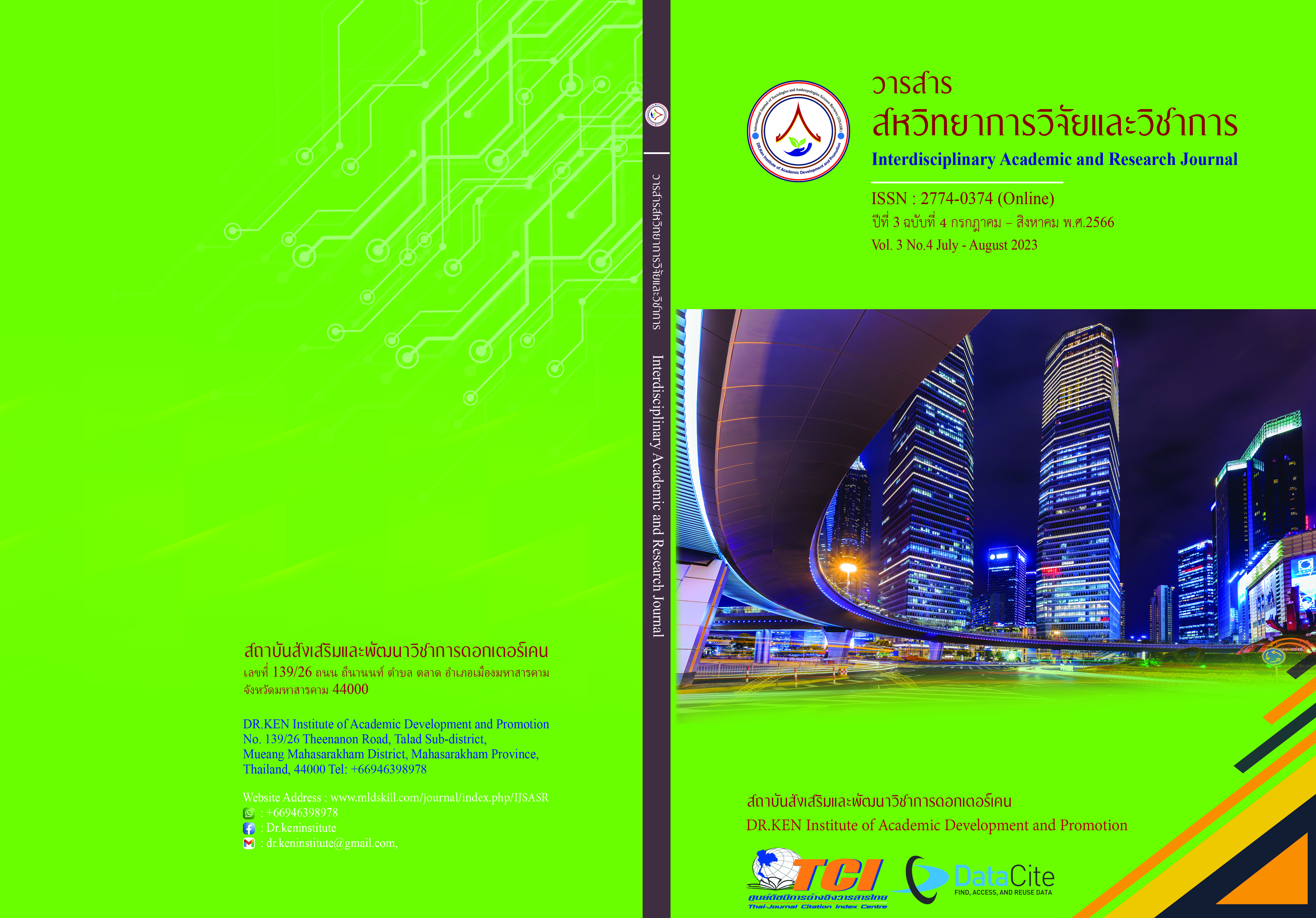Adoption of Value-Based Confiscation in Gambling Case
DOI:
https://doi.org/10.14456/iarj.2023.180Keywords:
Value-based Confiscation; , Gambling Case; , Adoption.Abstract
At present, the criminal offense in the case of gambling where the perpetrator intends to benefit the economy is important because it only commits the offense of converting the property acquired through the offense. To amend the limitation of the penalty for forfeiture of property acquired through the commission of a gambling offense under the Gambling Act 1935, due to the forfeiture of such property, courts can order the offender to pay the value of the property the offender acquired by or acquired for the commission of the offense. without specifying any specific assets. Thus, this research aims to 1) study the background, meaning, notion, and theory of confiscation, 2) study law related to confiscation in Thailand and foreign country, 3) analyze the problem and obstacles related to value-based confiscation in gambling cases and 4) summarize and provide a process of value-based confiscation in the gambling case. This research is a qualitative study, investigated by document research, such as law, academic journals, research papers, relevant articles, documents from the judgment of the court and Constitution Court of Thailand and foreign countries, and documents from websites and online channels both in Thai and foreign languages. The document was analyzed and presented by descriptive analysis. This research presented that according to Gambling Act B.E. 2478, money, properties or rewards could be confiscated from gamblers in case of gambling situation. Money or properties relating to gambling cases were distributed and transferred, it could not be confiscated. Measurement of asset and property on Gambling Act B.E. 2478 applied a regulation of specific confiscation. It implied that the confiscated properties relating to gambling deeds. When the official order from the Court was announced, properties should be existing. Therefore, hiding property became a problem that affected the procedures of government officials. They could not track the hiding property and gamblers still received advantages from their wrong behaviors. As a result, Gambling Act B.E. 2478, section 10 was revised and added a new definition of property relating to wrong behavior.
References
คณิต ณ นคร. (2564). กฎหมายวิธีพิจารณาความอาญา. พิมพ์ครั้งที่ 10. กรุงเทพฯ: วิญญูชน.
ฉัตรชัย จันทเสนา. (2558). วิวัฒนาการของโทษริบทรัพย์สิน ในประเทศไทยและปัจจัยที่ส่งผลต่อความเปลี่ยนแปลง. วิทยานิพนธ์มหาบัณฑิต คณะนิติศาสตร์ จุฬาลงกรณ์มหาวิทยาลัย
ณรงค์ ใจหาญ. (2543). กฎหมายอาญาว่าด้วยโทษและวิธีเพื่อความปลอดภัย. กรุงเทพฯ: วิญญูชน.
ปราโมทย์ เสริมศีลธรรม. (2564). หลักเกณฑ์ในการกำหนดโทษทางอาญา กายใต้โครงการสนับสนุนสารสนเทศเพื่อการทำงานของสมาชิกรัฐสภา. กรุงเทพมหานคร: สถาบันพระปกเกล้า.
พิพัฒน์ จังรางกูร. (2561). การริบทรัพย์สิน. วิทยานิพนธ์มหาบัณฑิต คณะนิติศาสตร์ มหาวิทยาลัยธรรมศาสตร์.
สนั่น ยามาเจริญ. (2560). โทษริบทรัพย์สินตามประมวลกฎหมายอาญา. การประชุมหาดใหญ่วิชาการระดับชาติและนานาชาติ ครั้งที่ 8 มหาวิทยาลัยหาดใหญ่ วันที่ 22 มิถุนายน 2560.
สำนักงานเลขาธิการสภาผู้แทนราษฎร. (2564). ร่างพระราชบัญญัติแก้ไขเพิ่มเติม ประมวลกฎหมายอาญา อาญา(ฉบับที่... พ.ศ...." Retrieved on April 24, 2021, from https://dl.parliament.go.th/handle/lirt/299528.
สุรสิทธิ์ แสงวิโรจนพัฒน์. (2564). ริบทรัพย์สินตามประมวลกฎหมายอาญาของไทย: ปัญหาข้อกฎหมายบางประการ. บทบัณฑิตย์. 77 (1), 121 - 155.
อัจฉรียา ชตินันทน์. (2562). นิติวิธีในการตีความกฎหมายอาญาของไทย. วารสารสุทธิปริทัศน์. 33 (107), 247-261.
Downloads
Published
How to Cite
Issue
Section
License
Copyright (c) 2023 Rittirong Bhumisawasdi

This work is licensed under a Creative Commons Attribution-NonCommercial-NoDerivatives 4.0 International License.
Copyright on any article in the Interdisciplinary Academic and Research Journal is retained by the author(s) under the under the Creative Commons Attribution-NonCommercial-NoDerivatives 4.0 International License. Permission to use text, content, images, etc. of publication. Any user to read, download, copy, distribute, print, search, or link to the full texts of articles, crawl them for indexing, pass them as data to software, or use them for any other lawful purpose. But do not use it for commercial use or with the intent to benefit any business.
















.png)


